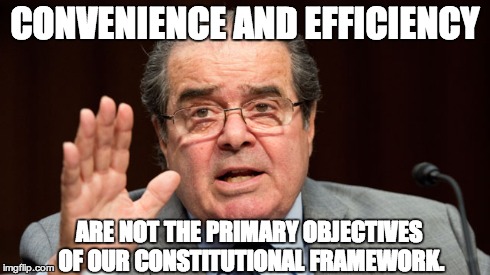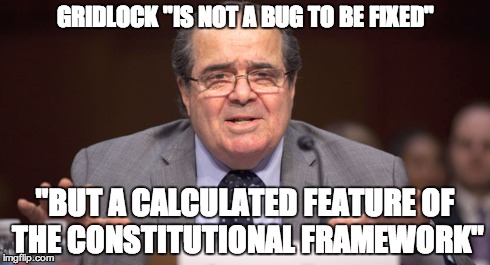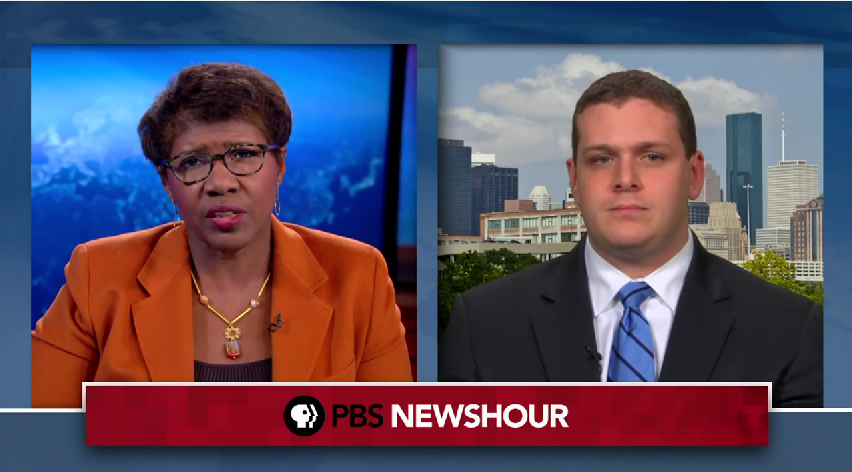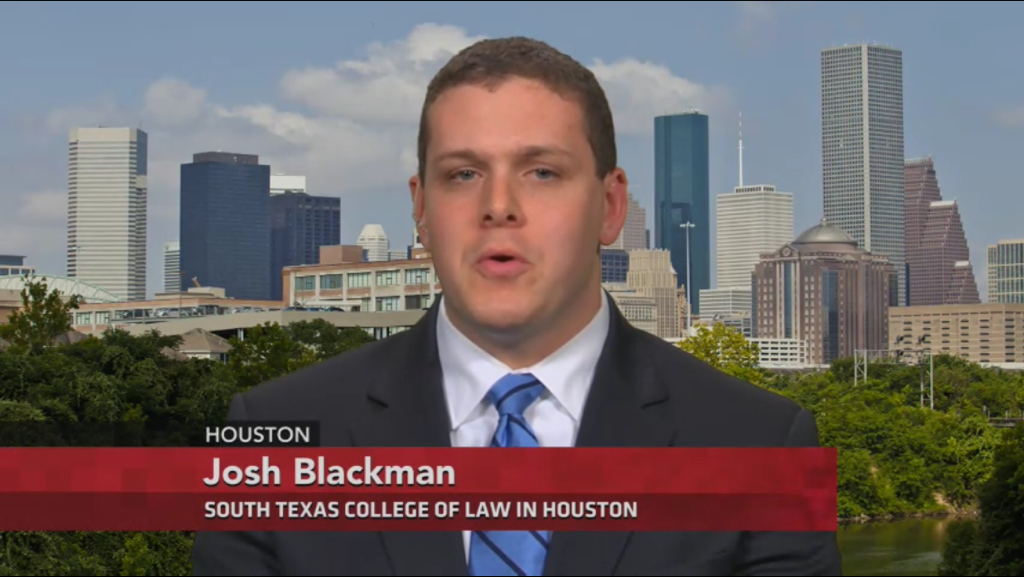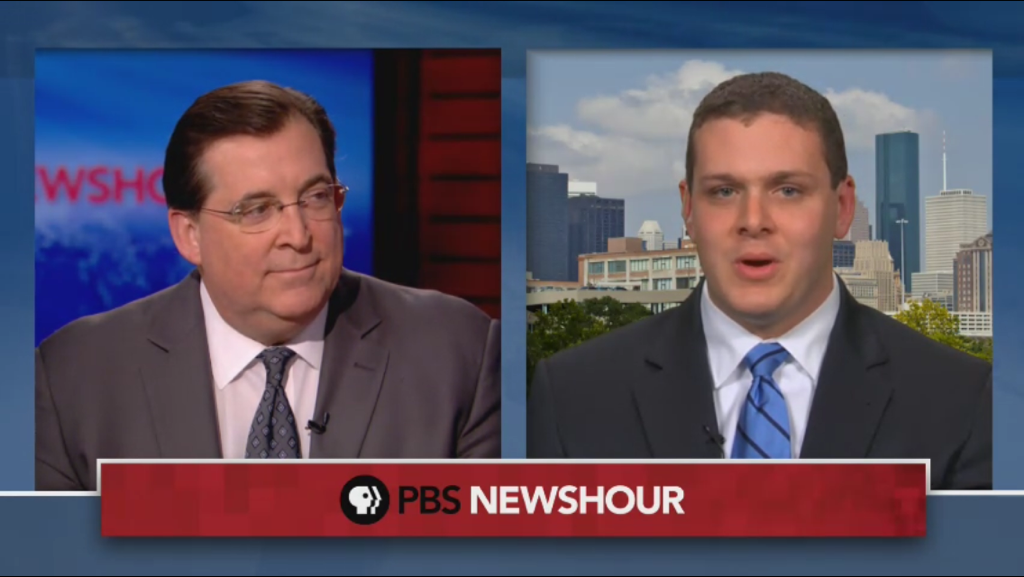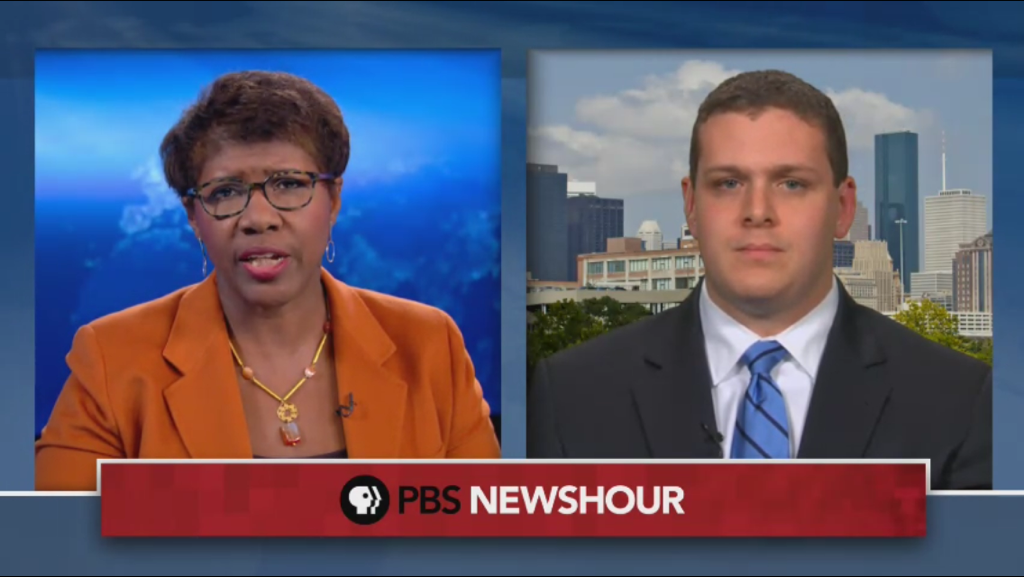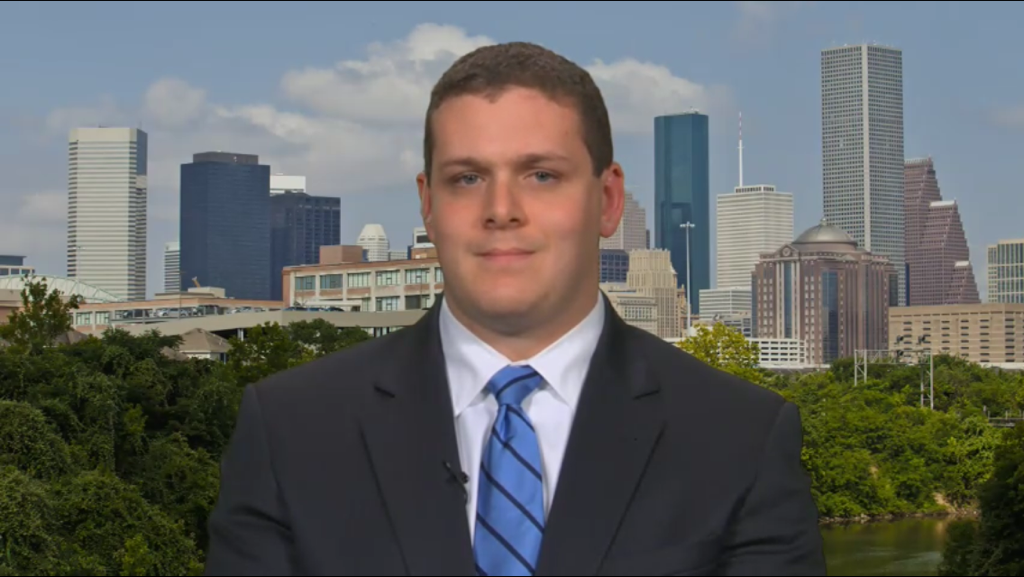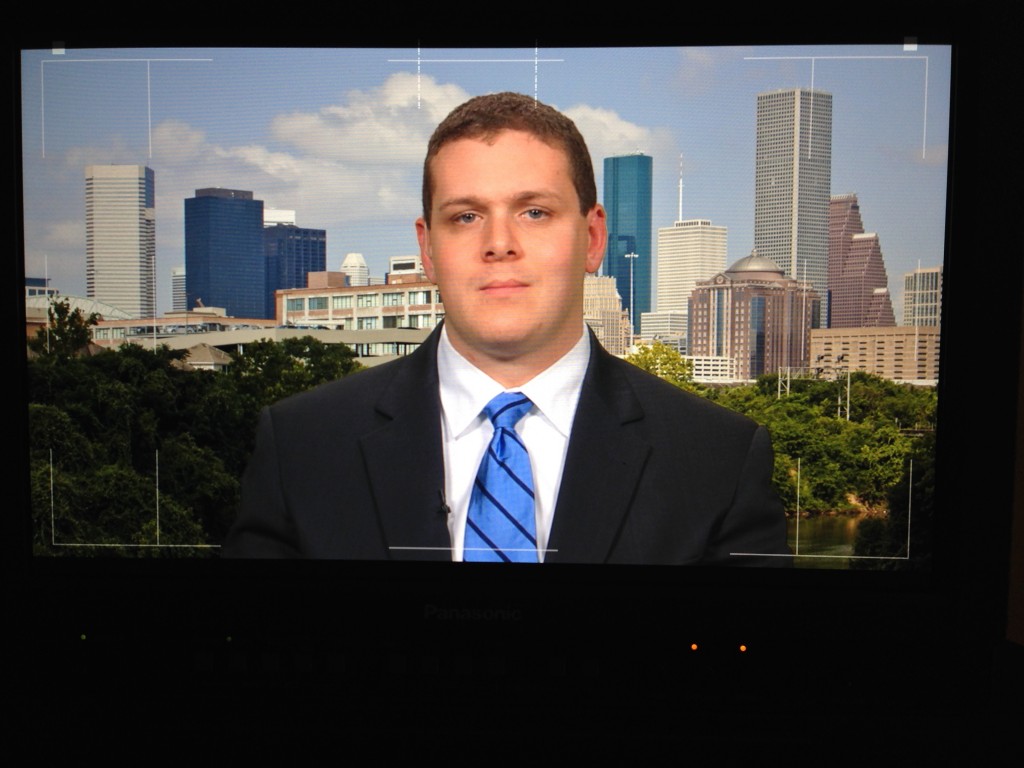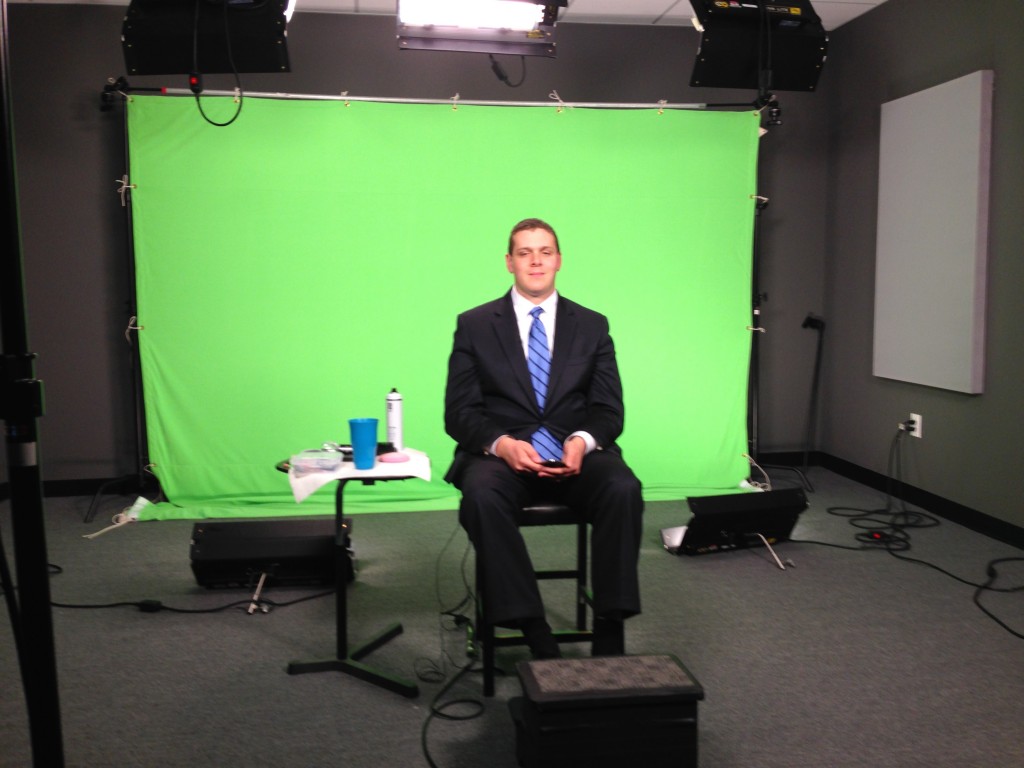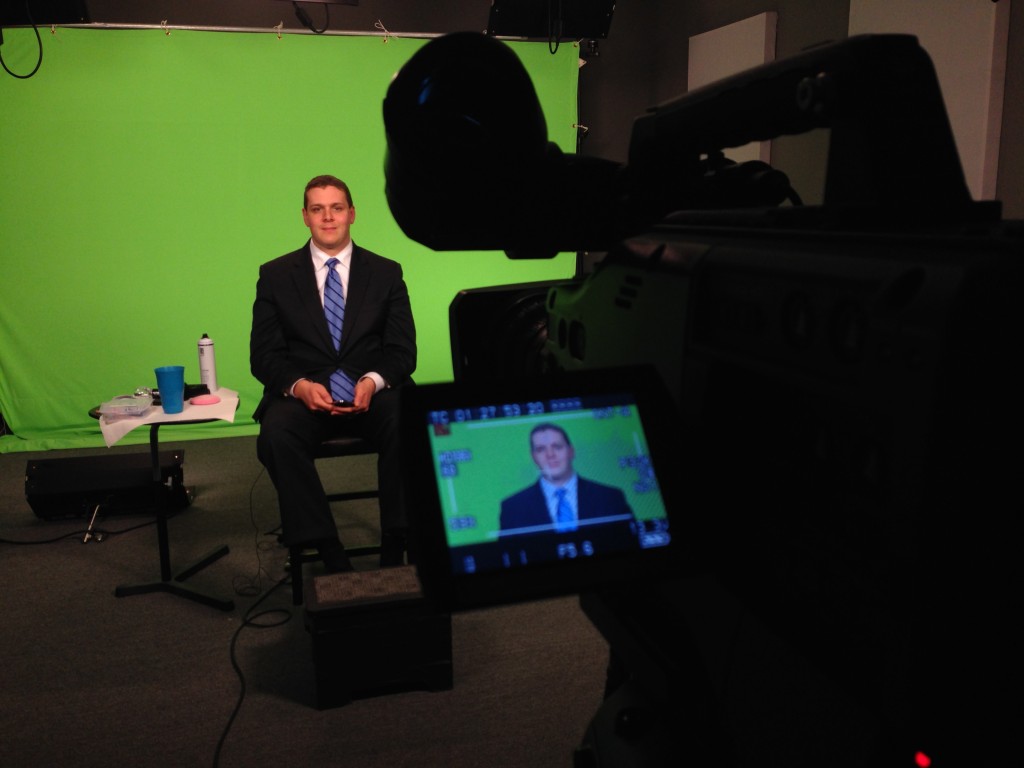Tonight, I appeared on the PBS News Hour to debate the constitutionality of President Obama’s executive action on immigration. Here is the video.
I would like to focus on a few of my comments, and elaborate them.
First, I tried to rebut the discussion that President George H.W. Bush’s deferral of 1.5 million sets a precedent for President Obama. As I noted in the NYT Room for Debate, and in a piece that I’ll post later, the positions are worlds apart:
So the president has a duty to take care of the law and to faithfully execute it.
So, while he does have discretion, I don’t agree that it’s absolute. I think the important point to make is, this goes far beyond what has been done before. It’s unprecedented. Frank mentioned that George H.W. Bush granted deferrals for 1.5 million. I think the key fact to remember is, these are people who are related to those being naturalized by the immigration laws.
So, it’s simply not the case. Here, President Obama imposed DACA for the dreamers. And now he’s going to add five million, six million more. None of these people under statutory law have any pathway to citizenship. This is really different than what was done before.
More precisely, all of the people H.W. Bush deferred had a path to citizenship (however long and arduous) through a naturalized spouse or parent. Deporting these people made little sense. In sharp contrast, the bulk of the people President Obama is deferring have no similar path.
Second, I explained that even though there is no formal amnesty (this is a huge misnomer), future presidents will effectively be estopped from taking any action against these five million:
Well, no, it’s not granting amnesty. You’re not giving them citizenship.
But what you are doing is giving them a legal status and working papers. What this does is make them effectively untouchable by future presidents. So, though in effect there’s no legal status, it makes it very difficult for any future presidents to take them out of that status.
So the president is giving the next person in office this situation to deal with.
Third, I repeated my call to see the DOJ OLC memos prior to this action:
So, I think the way we have to look at this is, what changed?
Until very recently, the president said over and over and over again he doesn’t have the authority to do this. Now he says his position is legally unassailable. I would like to see the memorandums from the Department of Justice explaining, what is the legal basis for this? What does this mean? What are the implications of this?
If he can do this, what else can he do? And we need to have this debate before the action happens, not afterwards.
Fourth, in the part that got Gwen Ifill’s attention the most, I posited what a President Ted Cruz or Rand Paul could do with such power.
GWEN IFILL: Is part of your concern that the people who will now be given this temporary protection will also be on a path to citizenship?
JOSH BLACKMAN: Well, I think the bigger issue is what this means for future presidents.
So, if I can indulge for a second, imagine a President Ted Cruz decides not to enforce environmental laws or imagine if a President Rand Paul decides not to enforce a corporate income tax. The president’s ability to suspend the laws and not enforce them raises serious implications.
I want to see what the legal implications are. Where are the limits of the ability of the president to not enforce the laws? I want to see, what are the memoranda making that point?
Ifill seemed concerned about how these rogue Republicans may govern, so she posed the question to Frank Sharry:
GWEN IFILL: But Josh Blackman makes the point, what if it’s something you don’t agree with that the president decides to do?
He smirked, and dodged the question, calling it a “smokescreen.”
Fifth, I veered into the politics, and stated the painfully obvious.
Well, simply because the president doesn’t get what he wants doesn’t mean he can do it anyway. We had an election. His party didn’t do very well. He had legislation. It didn’t go anywhere. He lost.
And sometimes, when you’re a politician, you have to take your losses and go home, despite the humanitarian concerns which I think are significant and Frank make valid points. You don’t get to do what you want when don’t have the votes in Congress. And each time the president has been in office, every successive elections, he has lost seats.
And now in his lame-duck session, when the Congress is about to begin its last term, he’s doing it now, when there are more elections to hold accountable. So I really think the fact that the president cited this gridlock in Washington as a justification for his executive actions is really a misnomer. He doesn’t have the power and he is choosing to do it anyway.
Sixth, I closed with my most important constitutional point I make in Gridlock and Executive Power–gridlock is part of our constitutional order.
Until the Congress is willing to approach and make a compromise, there’s nothing that can be done. And, frankly, that’s how our system works. Right? Our Constitution is not designed to be efficient. Gridlock is part of our constitutional order. For better or worse, we have checks and balances for a reason.
I paraphrased Justice Scalia’s opinion in Noel Canning, where he explained that “efficiency” is not part of our framework, and Gridlock is “not a bug to be fixed . . . but a calculated feature of the constitutional framework.” Here they are in meme forms.
I am really glad I got this point in. It was really tough to quote Nino verbatim on the fly, but this was close enough. (Giving this lecture a dozen times this semester has drilled the points into my head).
As an aside, this is a fraught topic with a lot of emotion, for very good reasons. I agreed with Frank’s discussion of the “humanitarian concerns” at issue here. As a matter of policy, I am very sympathetic to what President Obama is attempting to do, and support the legislation that stalled in Congress. But far more important than my policy preferences are the separation of powers. These checks agree for reasons far greater than any policy debates of the day.
As another aside, I lead off sentences with the words “so” and “well” way too often. I’ve noticed that before, but having my remarks transcribes really brings it into focus. I will try to cut down on those crutches.
As a final aside, here are some photos from the episode.
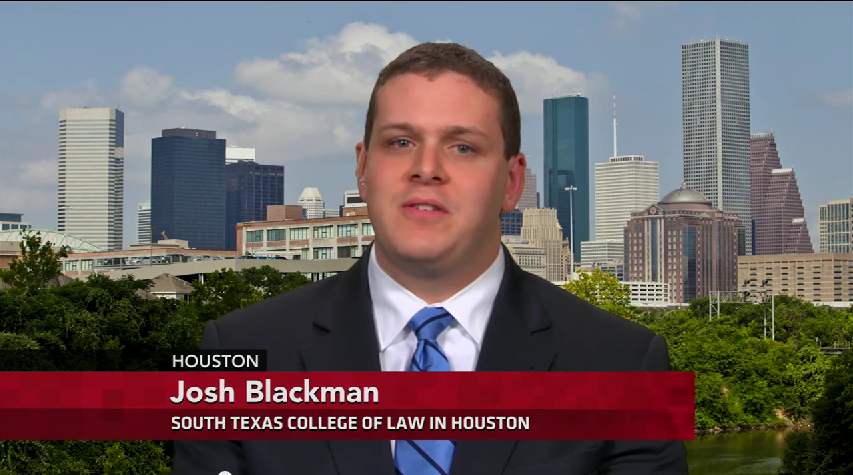
And with the green screen:
